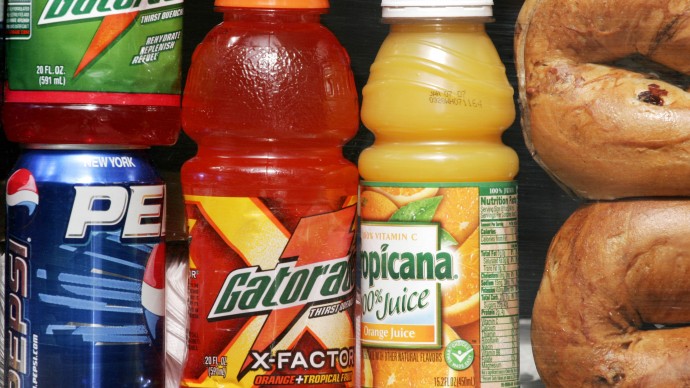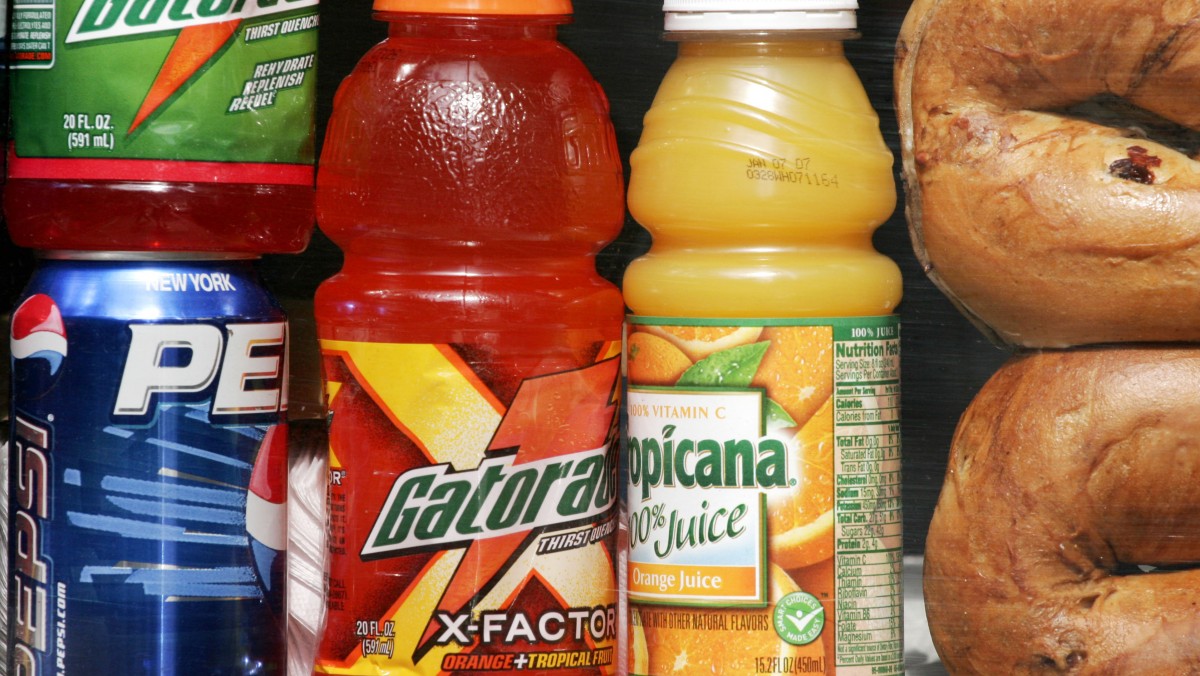
Update | By Trisha Marczak
Fifteen-year-old Sarah Kavanagh now has a victory story to tell. After calling on PepsiCo to remove a known carcinogenic chemical from its Gatorade sports drink, the company said today it would comply.
The chemical, which is also used as a flame retardant, was used in the sports drink to keep an even distribution of flavor.
A spokesperson for PepsiCo did not say the change was due to Kavanagh’s petition.
(MintPress) – A U.S. teen is launching a campaign urging American food manufacturers to lay off chemicals in food that have already been banned in foreign countries.
Fifteen-year-old Sarah Kavanagh has had enough. When she learned that her Gatorade bottle was home to emulsifier, a chemical used to keep oil and water from separating, she was concerned. So concerned, in fact, that she started a nationwide crusade to end its legal use, citing studies that linked the chemical to reproductive and behavioral issues in mice.
Aside from scientific backing, the dangers have also been recognized by countries throughout the world, including Canada, Nepal, India, Brazil, Japan and members of the European Union.
According to an interview with the Chicago Tribune, Kavanagh’s outrage led her to create a petition on change.org, intended to lobby the U.S. Food and Drug Administration (FDA) to take a second look at emulsifier and other chemicals found in U.S. foods.
Emulsifier is just one chemical approved by the FDA that has been banned in other Western countries. International food companies have become accustomed to varying regulatory bodies, catering their product to the nation — at least up until this point.
“The FDA has been extremely lenient in evaluating food additives, and it’s almost impossible to get the FDA to ban an additive once they have approved it,” Michael Jacobson, executive director for the Center for Science in the Public Interest, told the Chicago Tribune.
Johnson has directly targeted the FDA’s approval of potassium bromate, a flour enhancer that has also been labeled a carcinogenic.
Bovine Growth Hormone, also known as rBGH, has also banned in European countries and Canada due to associated cancer risks.
The fight to label all dairy products containing rBGH began back in the 1990s, but received quite a bit of resistance through the FDA and its manufacturer, Monsanto, citing lack of evidence that it’s linked to cancer, insulin and hormone-related illnesses.
Today, the FDA director, Michael Taylor, is the former vice president of Monsanto.
While the FDA touts the U.S. food supply as the safest in the world, Americans like Kavanagh are concerned that this might not be the case. As pointed out in Natural News, a health advocacy news service, the number of chronic illnesses in the U.S. nearly doubled in nine years, after the genetically modified products began making their way into American grocery marts.
From 1997 to 2002, the number of allergy-related visits to American emergency rooms doubled.


